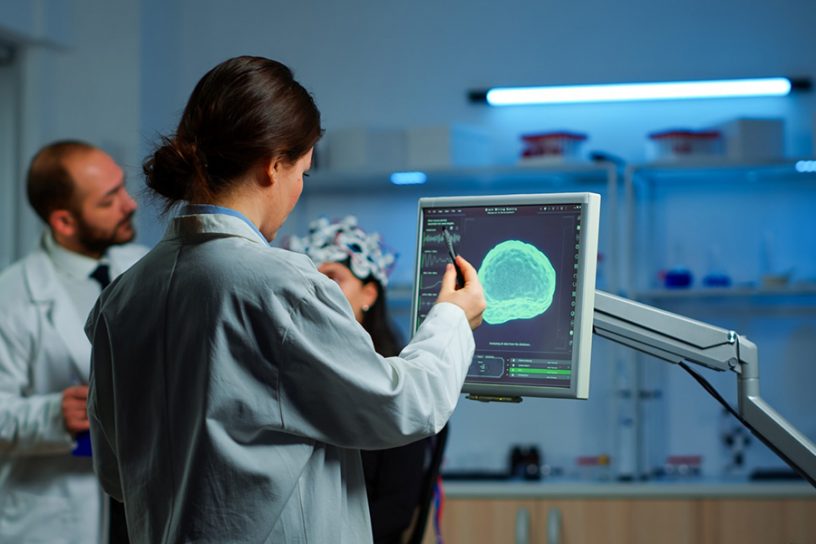
This review examines and highlights the latest developments in magnetic resonance spectroscopy, mass spectrometry, and other technologies in studying human brain tumor metabolomics.
Authors
Anirban Goutam Mukherjee, Department of Biomedical Sciences, School of Bio-Sciences and Technology, Vellore Institute of Technology (VIT), Vellore, 632014, Tamil Nadu, India.
Abilash Valsala Gopalakrishnan, Department of Biomedical Sciences, School of Bio-Sciences and Technology, Vellore Institute of Technology (VIT), Vellore, 632014, Tamil Nadu, India.
Rama Jayaraj, Professor, Jindal Institute of Behavioural Sciences, O.P. Jindal Global University, Sonipat, Haryana, India.
Raja Ganesan, Institute for Liver and Digestive Diseases, College of Medicine, Hallym University, Chuncheon, Republic of Korea.
Kaviyarasi Renu, Centre of Molecular Medicine and Diagnostics (COMManD), Department of Biochemistry, Saveetha Institute of Medical and Technical Sciences, Saveetha Dental College & Hospitals, Saveetha University, Chennai, 600077, Tamil Nadu, India.
Balachandar Vellingiri, Stem cell and Regenerative Medicine/Translational Research, Department of Zoology, School of Basic Sciences, Central University of Punjab (CUPB), Bathinda, 151401, Punjab, India.
Abhijit Dey, Department of Life Sciences, Presidency University, Kolkata, 700073, West Bengal, India.
Mohamudha Parveen, Faculty of Medicine, University of Texas Rio Grande Valley, Harlingen, USA.
Summary
Regardless of the significant progress made in surgical techniques and adjuvant therapies, brain tumors are a major contributor to cancer-related morbidity and mortality in both pediatric and adult populations. Gliomas represent a significant proportion of cerebral neoplasms, exhibiting diverse levels of malignancy.
The etiology and mechanisms of resistance of this malignancy are inadequately comprehended, and the optimization of patient diagnosis and prognosis is a challenge due to the diversity of the disease and the restricted availability of therapeutic options. Metabolomics refers to the comprehensive analysis of endogenous and exogenous small molecules, both in a targeted and untargeted manner, that enables the characterization of an individual’s phenotype and offers valuable insights into cellular activity, particularly in the context of cancer biology, including brain tumor biology.
Metabolomics has garnered attention in current years due to its potential to facilitate comprehension of the dynamic spatiotemporal regulatory network of enzymes and metabolites that enables cancer cells to adapt to their environment and foster the development of tumors.
Metabolic changes are widely acknowledged as a significant characteristic for tracking the advancement of diseases, treatment efficacy, and identifying novel molecular targets for successful medical management. Metabolomics has emerged as an exciting area for personalized medicine and drug discovery, utilizing advanced analytical techniques such as nuclear magnetic resonance spectroscopy (MRS) and mass spectrometry (MS) to achieve high-throughput analysis. This review examines and highlights the latest developments in MRS, MS, and other technologies in studying human brain tumor metabolomics.
Published in: Medical Oncology
To read the full article, please click here.


